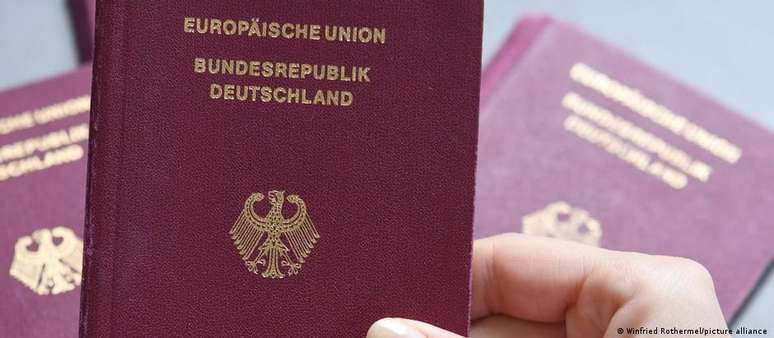The government has reached an agreement to reform the law on the matter, the newspaper said. The proposal reduces the length of stay in the country to apply for a passport from eight to five years. Dual citizenship would also be allowed. Germany’s coalition government has reached an agreement to reform the country’s current citizenship law, according to German media. The bill put together by German Interior Minister Nancy Faeser aims to significantly simplify and streamline the process of obtaining a German passport.
According to a report in the Süddeutsche Zeitung newspaper, the minimum period for migrants residing in the country to apply for citizenship should be reduced from the current eight to five years.
“We also want people who have become part of our society to be able to contribute to shaping our country democratically,” Faeser told the newspaper. “This is also key to attracting the skilled workers we urgently need,” she added.
In proven cases of “outstanding achievements” of integration in the country, such as good language skills, voluntary services to society or outstanding achievements at work, naturalization will be possible after three years of living in Germany.
Children of foreign parents born in Germany should also be able to become German more quickly. The condition: that one of the parents has legally resided in the country for five years. Currently, this is only possible after eight years.
According to the German magazine, seniors over the age of 67 will be exempt from the written test by proving their command of the German language during the process of obtaining a passport. Instead, they can have their command of the language attested through an oral test.
Possibility of dual citizenship
One of the main changes envisaged is the end of the obligation to renounce the previous citizenship in order to obtain a German passport. According to the Süddeutsche Zeitung, the text of the bill notes that this legal principle no longer corresponds to daily practice, since for years now most naturalizations have taken place without people having to renounce other nationalities, due to a series of derogations to the rule.
The leader of the parliamentary group of the Social Democratic Party (SPD), Dirk Wiese, told the Rheinische Post newspaper that an agreement was close. “Important details have already been pretty much clarified,” he said. According to him, people who have been shown to have committed anti-Semitic, racist, xenophobic or inhumane crimes should be excluded from the right to naturalisation. “Citizenship can only be obtained by those who respect our system of values,” said the deputy, an expert on domestic politics.
The reform of the law on citizenship is foreseen in the coalition contract signed at the end of 2021 by the parties that make up the current government alliance, made up of social democrats, greens and liberals.
md/bl (DPA, EPD, AFP)
Source: Terra
Rose James is a Gossipify movie and series reviewer known for her in-depth analysis and unique perspective on the latest releases. With a background in film studies, she provides engaging and informative reviews, and keeps readers up to date with industry trends and emerging talents.







